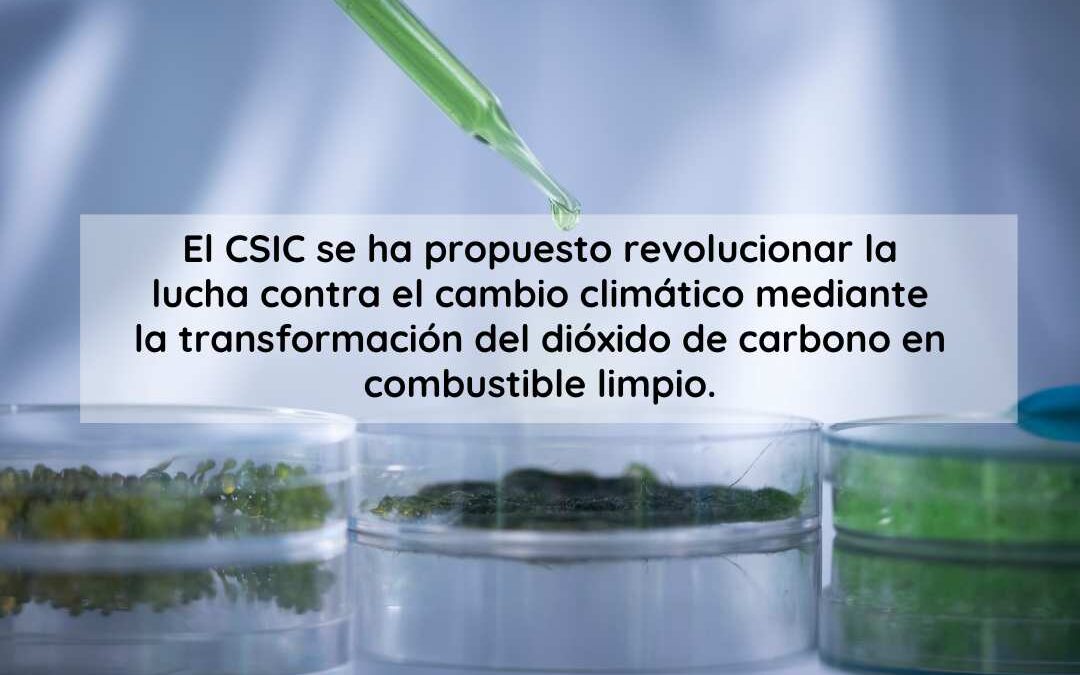The Spanish National Research Council (CSIC) aims to revolutionise the fight against climate change by transforming carbon dioxide into clean, high-quality fuel.
Silvia Morales de la Rosa, leader of the FuelGAE project at the Institute of Catalysis and Petrochemistry (ICP-CSIC), heads an international consortium of 13 researchers funded with 5 million euros by the European Union’s Horizon Europe programme.
Their goal is to find an efficient method to transform CO2 emissions into biofuels and bioproducts, contributing to the commitment to climate neutrality by 2050.
In this exciting project, algae are the protagonists. FuelGAE will develop pilot plants of selected microalgae for the mass production of complex liquid fuels, using CO2 emission streams from biorefinery and energy intensive industries. Each microalgae strain will be specifically adapted to the different pollutants of each industry and emission variant.
To this end, various technologies are being explored, such as the selective production of microalgae to obtain polysaccharides or lipids, treatments with microalgae biomass and innovative systems with catalysts.
Silvia Morales de la Rosa stresses: “This initiative demonstrates that it is possible to eliminate CO2 emissions, which cause the greenhouse effect, in a sustainable way and at competitive prices, contributing to the transition to a fossil fuel-free energy system by 2050”.
However, the project faces challenges, especially in terms of the energy cost of microalgae-based processes. The ICP-CSIC team seeks to overcome this through novel component separation methods, which save energy and make the process economically and environmentally cost-effective.
The innovative chemical technologies developed for FuelGAE would allow biocrude and lipids to be harnessed, converting them into high-quality advanced fuels. According to José Miguel Campos Martín, researcher at ICP-CSIC: “These technologies are fundamental to convert a material that is difficult to handle and of low value into advanced fuels, usable in sectors that are difficult to decarbonise, such as air and maritime transport.
If you would like more information about dangerous goods transport or any of our services, please do not hesitate to contact us.

